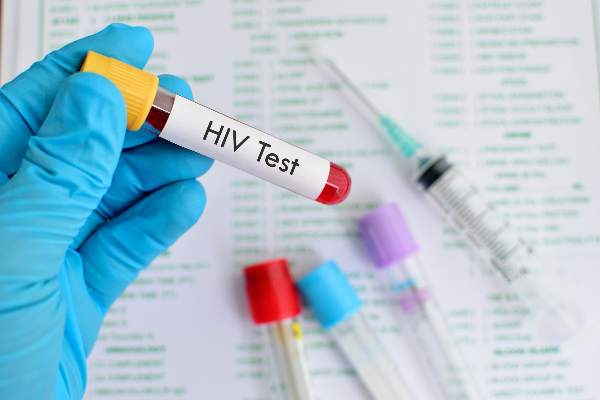FROM JAMA
Screening a high-prevalence population for acute HIV infection using an antigen/antibody combination assay instead of rapid HIV testing improved the diagnostic yield by 10%, according to a report published online Feb. 16 in JAMA.
Identifying HIV infection during the acute phase is important because that is the most highly infectious stage of the disease. HIV RNA testing using a pooled protocol is effective at this stage but hasn’t been widely adopted “because only 1 RNA assay is U.S. Food and Drug Administration–approved [for this indication], the pooling protocol is logistically complex and time intensive, and it may not be cost-effective,” said Dr. Philip J. Peters of the division of HIV/AIDS prevention, Centers for Disease Control and Prevention, Atlanta, and his associates.
In contrast, combination assays that detect both the p24 antigen and anti-HIV antibodies are faster, are probably cost effective, and are currently recommended by the CDC and the Association of Public Health Laboratories to screen for acute infection. Nevertheless, these assays are not as sensitive as pooled HIV RNA testing, and their accuracy has not been fully established. Dr. Peters and his associates compared the performance of the HIV antigen/antibody combination assay against that of pooled HIV RNA testing (the reference standard) in a high-prevalence population: 86,836 patients treated at 12 centers in San Francisco, New York City, and North Carolina during a 2-year period, including STD clinics and community-based programs.
Just over half of the study population were men who had sex with men, and the median age was 29 years.
The antigen/antibody assay detected 134 of 168 acute infections that had been missed by the rapid HIV test, but it also produced false-positive results for 93 patients. The assay thus had a sensitivity of 79.8%, a specificity of 99.9%, and a positive predictive value of 59%. Relative to rapid HIV testing, the antigen/antibody assay increased the diagnostic yield by 10.4%, Dr. Peters and his associates reported (JAMA. 2016 Feb 16;315[7]:682-690. doi: 10.1001/jama.2016.0286).
As expected, pooled HIV RNA testing performed even better, detecting 164 of the 168 acute infections for a sensitivity of 97.6%, a specificity of 100%, and a positive predictive value of 96.5%. Relative to rapid HIV testing, pooled HIV RNA testing increased the diagnostic yield by 12.4%.
Pooled HIV RNA testing, however, is estimated to cost approximately $160.07 per test, while antigen/antibody combination assays cost only $4.23 each. In addition, antigen/antibody testing requires only 30 minutes (if results are negative) to 60 minutes (if results are positive), while pooled HIV RNA testing requires 6 hours, and the pooling process requires an additional 4-7 days, the investigators noted.
This study was supported by the Centers for Disease Control and Prevention, the San Francisco Department of Public Health, the New York City Department of Health and Mental Hygiene, and the University of North Carolina at Chapel Hill. Dr. Peters and his associates reported having no relevant financial disclosures.




